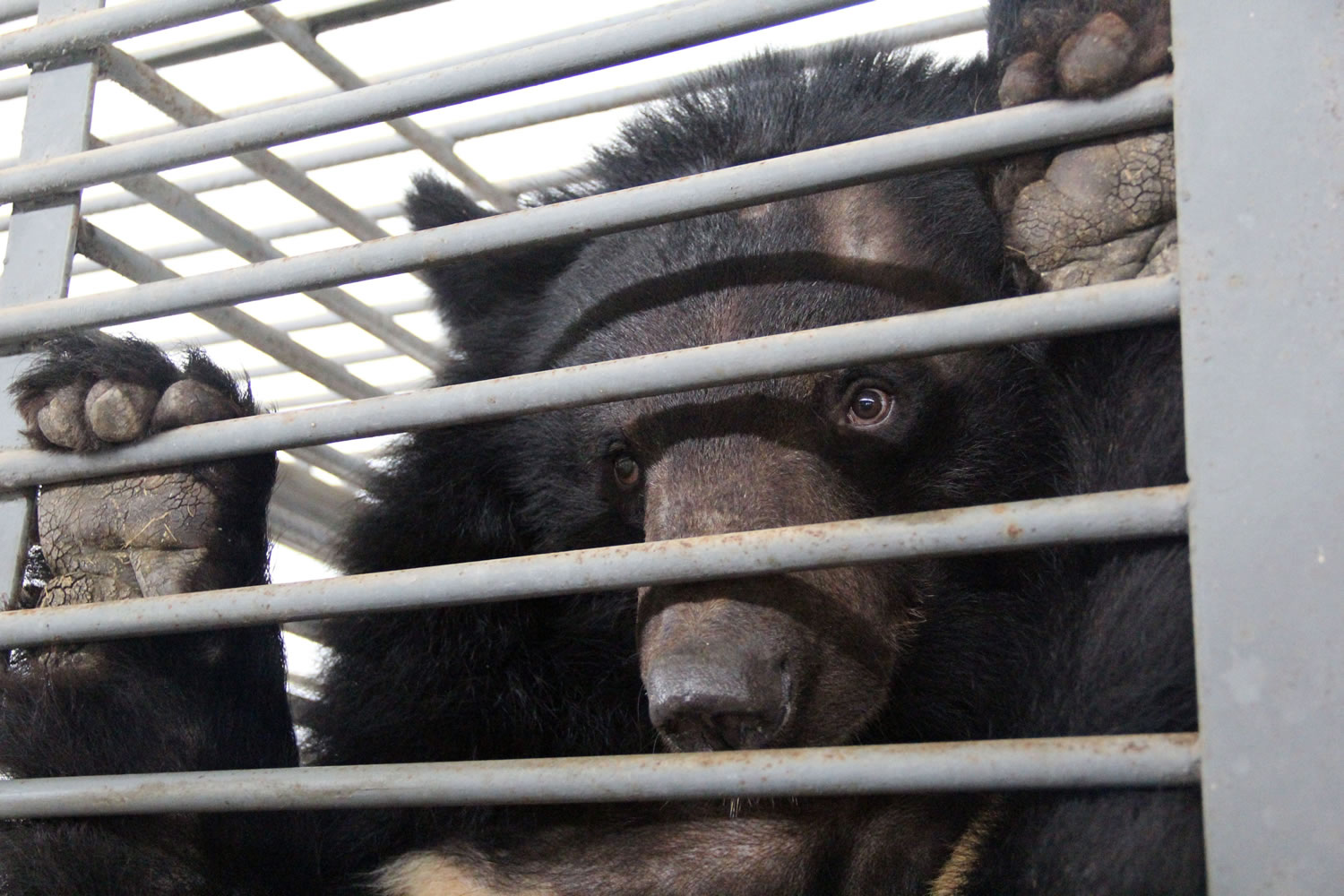BEIJING — In what’s being described as a major victory against abusive animal practices in China, a government-owned company that’s bred bears for traditional medicines has agreed to convert itself into a sanctuary.
Animal welfare advocates hope the agreement, signed recently at a news conference in Beijing, will prompt the government to phase out other bear farms nationwide. Some 70 such breeding facilities are thought to exist in China, caging more than 10,000 bears. Each day, employees milk bile from the bears’ gallbladders, exposing the bruins to infections, organ failures and other fatal diseases.
“This is huge,” said Jill Robinson, the founder of Animals Asia, a nonprofit agency that negotiated the agreement with Flower World, a state-run business in the southern Chinese city of Nanning. “This is the biggest thing we have done since we started.”
Under the pact, Animals Asia will care for 130 Asiatic black bears now caged at the Nanning bear farm. Starting this month, 28 of the sickest animals will be trucked to the group’s China Bear Rescue Center in Chengdu, about 745 miles away. The rest will stay in Nanning, where Animals Asia plans to retain the farm’s staff of 15 and train them in managing the sanctuary.
Bear bile — digestive juice produced by the liver and stored in the gallbladder — has long been part of Chinese traditional medicine, but it became an industry in China only in 1980. That’s when animal breeders in North Korea shared procedures they’d developed to extract bile from living bears. Within two decades, dozens of bear farms had popped up across China, providing bile for pharmaceutical companies that tout its supposed health benefits.
Flower World, a plant business owned by the Nanning Horticulture Department, decided to get into the bear farming industry in 2004. It started extracting bile from mature bears in 2008. According to the company’s general manager, Yan Shaohong, the government invested more than 8 million yuan, or $1.3 million, in the operation, but it was never profitable.
Yan, who became general manager in 2011, said he ended the farm’s bear bile extraction that year. Two years later, he and other employees visited Animals Asia’s Chengdu sanctuary, where veterinarians care for more than 200 bears rescued from animal farms.
Yan said he was so touched by the treatment of the animals in Chengdu that he decided to pursue the agreement with Animals Asia. Yan said his superiors in the Nanning Horticulture Department supported the decision. Negotiations lasted a year but concluded with the agreement, the first of its kind in China.
“We hope this will be a template for other bear farms in China,” said Toby Zhang, the external affairs director for Animals Asia. The group hopes to host a workshop later this year to have an “honest dialogue” with government and industry officials on phasing out bear farming.
Doing so won’t be easy. Animals Asia, which also operates a bear rescue center in Vietnam, estimates it will spend $5 million over three years caring for the Nanning animals and the sickest ones taken to Chengdu. At least 21 of the latter were milked for their bile. They’ll have to get their gallbladders removed or be at grave risk of infections, liver failure or tumors.
“Animals Asia cannot afford to turn every bear farm into sanctuary,” said Robinson, who founded the group in 1994. She said it would take coordination and cooperation from the Chinese government to phase out bear farming, an increasingly unpopular practice among Chinese.
In 2011, the Internet in China erupted with protests against a pharmaceutical company that had launched an initial public offering to expand its bear farming and sales of bear bile products. Animal welfare advocates claimed victory when Fujian Guizhentang Pharmaceutical later withdrew its IPO application.



